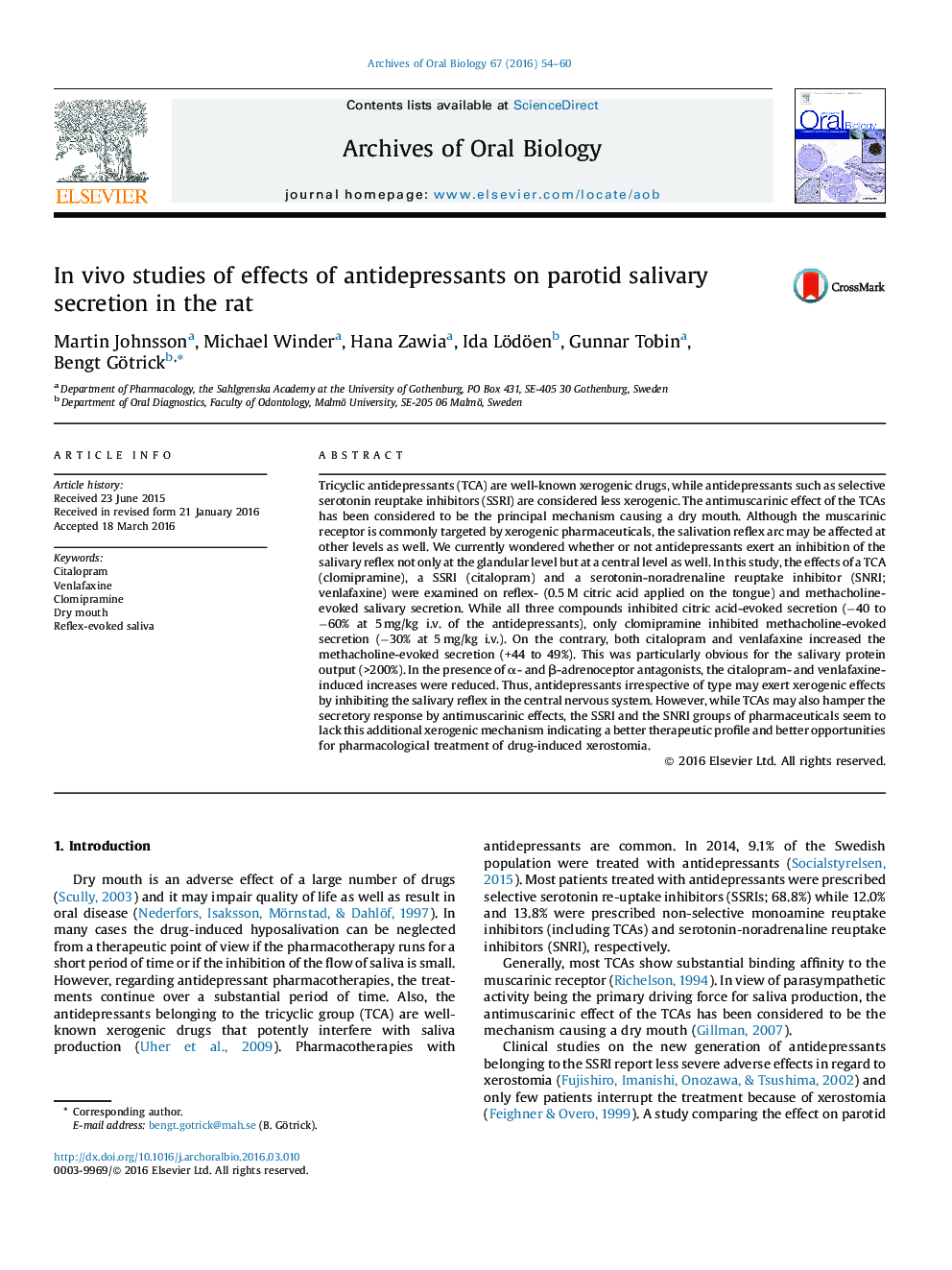| کد مقاله | کد نشریه | سال انتشار | مقاله انگلیسی | نسخه تمام متن |
|---|---|---|---|---|
| 3120666 | 1583286 | 2016 | 7 صفحه PDF | دانلود رایگان |

• Clomipramine inhibited saliva secretion evoked by citric acid or by methacholine.
• Citalopram and venlafaxine inhibited secretion evoked by citric acid and increased secretion evoked by methacholine.
• Antidepressants may inhibit secretion from salivary glands by inhibiting stimuli within the reflex arc and not only by antimuscarinic effects.
Tricyclic antidepressants (TCA) are well-known xerogenic drugs, while antidepressants such as selective serotonin reuptake inhibitors (SSRI) are considered less xerogenic. The antimuscarinic effect of the TCAs has been considered to be the principal mechanism causing a dry mouth. Although the muscarinic receptor is commonly targeted by xerogenic pharmaceuticals, the salivation reflex arc may be affected at other levels as well. We currently wondered whether or not antidepressants exert an inhibition of the salivary reflex not only at the glandular level but at a central level as well. In this study, the effects of a TCA (clomipramine), a SSRI (citalopram) and a serotonin-noradrenaline reuptake inhibitor (SNRI; venlafaxine) were examined on reflex- (0.5 M citric acid applied on the tongue) and methacholine-evoked salivary secretion. While all three compounds inhibited citric acid-evoked secretion (−40 to −60% at 5 mg/kg i.v. of the antidepressants), only clomipramine inhibited methacholine-evoked secretion (−30% at 5 mg/kg i.v.). On the contrary, both citalopram and venlafaxine increased the methacholine-evoked secretion (+44 to 49%). This was particularly obvious for the salivary protein output (>200%). In the presence of α- and β-adrenoceptor antagonists, the citalopram- and venlafaxine-induced increases were reduced. Thus, antidepressants irrespective of type may exert xerogenic effects by inhibiting the salivary reflex in the central nervous system. However, while TCAs may also hamper the secretory response by antimuscarinic effects, the SSRI and the SNRI groups of pharmaceuticals seem to lack this additional xerogenic mechanism indicating a better therapeutic profile and better opportunities for pharmacological treatment of drug-induced xerostomia.
Figure optionsDownload high-quality image (118 K)Download as PowerPoint slide
Journal: Archives of Oral Biology - Volume 67, July 2016, Pages 54–60